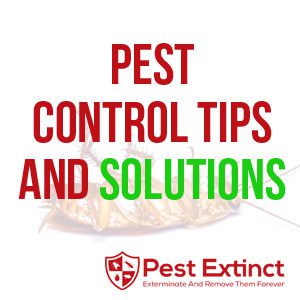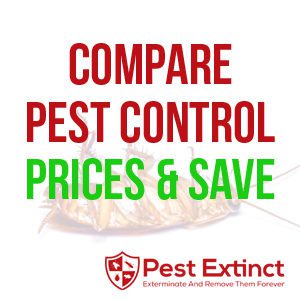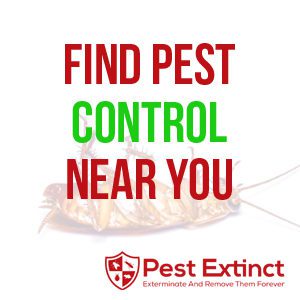
Comparing The Cost of DIY and Professional Pest Control Services
No matter where you live, there’s a good chance you’ve had to deal with pests at some point. Whether it’s pesky ants in the kitchen or more concerning termite damage, pests are a universal problem. As such, homeowners and businesses have to decide how to address these issues: Do it yourself or hire a professional? One of the main factors influencing this decision is cost. In this article, we’ll explore the financial aspects of DIY vs. professional pest control services to help you make an informed choice.
The Realities of DIY Pest Control:
1. Initial Costs: On the surface, DIY pest control might seem cost-effective. You can purchase over-the-counter treatments like sprays, baits, and traps at a fraction of the cost of hiring a professional.
2. Effectiveness: While store-bought treatments can work for minor infestations, they might not be potent enough to tackle severe or recurrent problems. Ineffective treatments can mean spending more over time as you repeatedly try to handle the issue yourself.
3. Time & Effort: Your time is valuable. The time spent researching pests, buying products, applying treatments, and monitoring results can add up. Plus, there’s no guarantee of success.
4. Potential Risks: Without proper knowledge, you can misuse pest control chemicals, leading to potential health risks for you, your family, pets, or even your plants.
Delving into Professional Pest Control Costs:
1. Initial Investment: Yes, hiring a professional does come with a higher upfront cost compared to buying a can of insecticide from the store. Depending on the service, location, and severity of the infestation, you might be looking at a substantial initial fee.
2. Comprehensive Service: With professional service, you’re not just paying for a product but also expertise. Professionals can identify the type of pest, locate the source of the infestation, and provide a tailored treatment plan. They’ll also offer advice on preventing future infestations.
3. Long-Term Effectiveness: Professionals use industrial-grade treatments that are often more effective and long-lasting than store-bought solutions. While you might pay more upfront, the long-term effectiveness can lead to savings as the need for repeated treatments diminishes.
4. Safety: Licensed pest control professionals are trained to handle and apply treatments safely, reducing risks associated with chemical exposure.

So, Which form of Pest Control is More Cost-Effective?
The answer isn’t black and white. For minor, isolated issues, DIY treatments might offer a cost-effective solution. However, for recurrent or severe infestations, the cumulative costs (both in terms of money and time) of repeated DIY attempts can surpass the cost of hiring a professional from the start.
Moreover, there’s the peace of mind associated with professional services. Knowing that your pest problem is being addressed by experts can be a relief, especially when dealing with more dangerous pests like wasps or toxic treatments.
While the sticker shock of professional pest control can be off-putting, it’s essential to consider the bigger picture. Factor in the potential long-term costs of DIY treatments, the time and effort saved, and the added assurance of a job done right. Depending on your situation, you might find that investing in professional services is the more cost-effective choice in the long run. Whatever you decide, remember that the ultimate goal is to live and work in a pest-free environment, and sometimes, it’s worth paying a bit more for that peace of mind.
Pest Problems You Should Not Ignore and When to Call the Pros
It’s easy to overlook a stray ant or the occasional buzzing mosquito in our homes. However, certain pest problems can quickly escalate and present serious health and structural risks if not addressed promptly. Recognizing these infestations and knowing when to call in professional help is crucial. Let’s dive into some of these pressing pest issues.
Termites:
Termites are the silent destroyers of homes. These wood-eating insects can cause significant structural damage before their presence becomes obvious. Some signs include:
- Mud tubes on walls or foundation
- Hollow sounding wood when tapped
- Discolored or drooping drywall
- Peeling paint resembling water damage
When to call the pros: At the first sign of termite activity. Early detection and treatment can prevent more substantial (and expensive) structural damage.
Rodents:
Rats and mice don’t just steal your food; they can carry diseases, damage electrical wires (posing a fire risk), and quickly reproduce, leading to a full-blown infestation.
Signs of rodent activity include:
- Droppings in drawers, cupboards, or corners
- Scratching noises in walls or under the floor
- Gnaw marks on food packaging or structures
When to call the pros: If you spot any signs of rodent activity or can’t control the problem with basic traps, it’s time to call in expert help.

Bed Bugs:
These blood-sucking pests can quickly spread throughout homes and are notoriously tough to eliminate.
Symptoms and signs include:
- Red, itchy welts on the skin
- Rusty or reddish stains on bed sheets or mattresses from crushed bugs
- Tiny eggs or eggshells, and pale yellow nymphs in bedding crevices
When to call the pros: Immediately upon suspicion or identification. DIY treatments for bed bugs are rarely effective, and delays allow the infestation to grow.
Carpenter Ants:
Unlike termites, carpenter ants don’t eat wood but bore through it to make their nests, potentially damaging the structure of your home.
Signs of an infestation include:
- Large black ants, especially near wood
- Small piles of wood shavings
When to call the pros: If you notice large numbers of these ants or wood damage, it’s best to seek professional intervention.
Cockroaches:
These resilient pests can spread diseases and trigger allergic reactions in some individuals.
Signs of cockroaches include:
- Live or dead cockroaches around the home
- Droppings that resemble coffee grounds
- A musty odor
When to call the pros: If you spot more than a solitary roach or notice any of the above signs, it’s wise to call in professionals. Cockroach populations can grow rapidly, so swift action is recommended.
While some minor pest issues can be addressed with DIY solutions, certain problems demand immediate professional attention due to the risks they present. It’s essential to stay vigilant, understand the signs, and know when it’s time to call in the experts. Your home’s integrity and the health of its occupants may very well depend on it.

How Much Does DIY Pest Control Cost vs. Professional Pest Control?
When it comes to pest control, both DIY and professional services come with their own sets of costs and benefits. Let’s take a closer look at the expenses associated with each method to understand what might be more cost-effective in the long run.
DIY Pest Control Costs:
1. Over-the-counter Pesticides:
- Average cost: $10 – $50 per bottle or can.
- These are readily available at local hardware stores. The price varies based on the type of pesticide and brand.
2. Traps and Baits:
- Average cost: $5 – $20 per pack.
- These can be effective for smaller infestations or as preventative measures.
3. Natural/Non-toxic Solutions:
- Average cost: $5 – $30.
- Options like diatomaceous earth, which can be effective against some insects.
4. Equipment:
- Average cost: $20 – $100.
- This can include items like sprayers, foggers, or protective gear.
5. Time and Effort:
- Though not a direct monetary cost, DIY solutions require a significant time investment, and there’s always a risk that treatments may not be effective, leading to repeated costs.
Estimated Total for DIY (Initial Setup): $40 – $200, with potential additional costs for repeated treatments.

Professional Pest Control Costs:
1. Initial Assessment:
- Average cost: $50 – $150.
- Most professionals will start with an assessment to determine the extent of the problem and recommend a treatment plan.
2. Standard Treatment:
- Average cost: $100 – $500 per treatment.
- This can vary widely based on the type of pest, severity of the infestation, and size of the property.
3. Specialized Treatments:
- Average cost: $500 – $2,500.
- Pests like termites or bed bugs often require more specialized treatments, which can be on the higher end of the cost spectrum.
4. Ongoing Maintenance:
- Average cost: $40 – $130 per month or $300 – $550 annually.
- Many professional services offer monthly or yearly packages to ensure pests don’t return.
Estimated Total for Professional Services: Initial treatments typically range from $150 to $2,650, depending on the pest and infestation level, with potential ongoing costs for maintenance.
Comparing the Two:
While the initial outlay for DIY methods might seem lower, there’s a significant risk factor to consider. If the DIY treatments aren’t effective, not only have you lost the money spent on those products, but the pest problem may have worsened in the meantime, leading to potentially higher costs when you eventually turn to a professional.
In contrast, professional services might have a higher upfront cost but come with the expertise and guarantee of addressing the infestation effectively. Plus, professionals have access to more potent treatments not available to the general public.
When deciding between DIY and professional pest control, it’s essential to weigh the immediate costs against the potential long-term savings. For minor issues, DIY might suffice, but for more severe infestations or tricky pests, investing in professional services could be more cost-effective in the long run.

Understanding Your Pest Control Options
Pest control isn’t a one-size-fits-all situation. Depending on the type of pest, the severity of the infestation, and your personal preferences, there are various options available to you. Let’s delve into some of the popular DIY and professional measures you can adopt:
DIY Pest Control Measures:
1. Chemical Treatments:
- Description: These are widely available over-the-counter sprays, powders, and bait stations that use chemicals to eradicate pests.
- Best For: Minor infestations of common pests like ants, roaches, and spiders.
2. Natural Repellents:
- Description: Made from natural ingredients, these solutions deter pests without the use of chemicals. Examples include citronella candles for mosquitoes or peppermint oil for spiders.
- Best For: Those looking for a more eco-friendly, non-toxic option, especially in homes with children and pets.
3. Mechanical Traps:
- Description: These include snap traps for rodents, flypaper, or electric bug zappers.
- Best For: Situations where pests can be lured and trapped. Often used for rodents or flying insects.
4. Preventative Measures:
- Description: Methods that prevent pests from entering, such as sealing cracks, maintaining cleanliness, or using screens.
- Best For: Pre-emptively addressing potential pest problems, especially in seasons where pests are more active.
Professional Pest Control Measures:
1. Targeted Chemical Treatments:
- Description: Professionals have access to a broader range of chemicals, some of which are stronger and more effective than over-the-counter options.
- Best For: Severe infestations, hard-to-reach areas, or when the exact cause of the pest problem is unknown.
2. Heat or Cold Treatments:
- Description: These treatments involve heating or cooling an area to temperatures that pests can’t survive in. Commonly used for bed bugs.
- Best For: Situations where chemicals might not be desired or effective.
3. Fumigation:
- Description: This is a more extreme measure, where an area (or even an entire building) is sealed off and filled with pesticide vapors or gases.
- Best For: Severe infestations, especially for pests like termites or bed bugs.
4. Biological Controls:
- Description: This involves using pests’ natural enemies to control them. For example, introducing ladybugs to control aphids in a garden.
- Best For: Outdoor settings or larger areas like farms.
5. Integrated Pest Management (IPM):
- Description: An eco-friendly approach that combines different control methods based on the specific situation. It may involve monitoring, preventative measures, and controlled use of pesticides.
- Best For: Those looking for a comprehensive, sustainable approach to pest control.
Choosing the right pest control option depends on your specific situation. While DIY measures might be sufficient for minor problems or as preventive measures, professional services offer specialized knowledge and tools that can effectively tackle severe infestations. Whatever you decide, it’s essential to act quickly and remain vigilant to keep pests at bay.

The Hidden Costs of Improperly Treating Pest Problems
Pest problems can be more than just a minor inconvenience; they can lead to significant damage and financial strain if not treated correctly. Often, property owners are tempted to go the DIY route to save on immediate costs, without considering the long-term implications. While DIY solutions can sometimes be effective, there are certain risks and hidden costs associated with them. Let’s explore why going the cheap route might end up being a more costly endeavor in the long run.
1. Ineffectiveness of Treatment
When dealing with pests, it’s not just about getting rid of them for the time being; it’s about ensuring they don’t return. Over-the-counter pest control solutions might not be potent enough to address severe infestations. This means that while you might see a temporary reduction in pests, they can come back in full force later on, requiring repeated treatments and thus more money spent over time.
2. Potential for Increased Damage
Certain pests, like termites, can cause structural damage to properties if not treated promptly and effectively. Delayed or ineffective treatment can allow these pests to wreak havoc, leading to costly repairs. For instance, termites can compromise the structural integrity of a building, leading to thousands of dollars in damage.
3. Health Hazards
Improperly handling chemicals and pesticides can pose significant health risks to both humans and pets. Without proper knowledge and protective equipment, you could inadvertently expose your household to toxic substances. On the other hand, a prolonged pest infestation, due to inadequate treatment, can lead to health issues ranging from allergic reactions to diseases.
4. Secondary Infestations
In some cases, using the wrong treatment can exacerbate the problem. For example, using certain pesticides can kill off a pest’s natural predators, allowing the pest population to surge unchecked. What started as a minor issue can quickly snowball into a more significant problem.
5. Time and Effort
The time you spend trying to tackle a pest problem on your own can be substantial. Between researching, buying products, applying treatments, and monitoring, you could spend hours or even days trying to manage the situation. And if it doesn’t work? That’s time wasted that could have been saved by hiring a professional from the start.

While the allure of saving money with DIY pest control solutions is understandable, it’s essential to weigh the immediate savings against the potential long-term costs. In many instances, investing in professional pest control services can save you time, money, and stress in the long run. It’s always a good idea to assess the severity of the infestation and consult with a pest control expert to determine the best course of action.
Opting for Professional Pest Control: Top 10 Companies of 2023
Making the decision to hire a professional for your pest control needs is a significant step in ensuring the safety and cleanliness of your property. But with so many options available, choosing the right company can be a challenge. To simplify your decision-making process, here’s a look at the top 10 pest control companies in 2023, based on customer reviews, efficacy, and innovative approaches.
1. PestBusters Inc. Renowned for their eco-friendly solutions, PestBusters Inc. uses methods that are safe for both the environment and households. They’ve garnered praise for their rapid response times and extensive pest library.
2. EcoGuard Pest Solutions Focusing primarily on sustainable pest control, EcoGuard has a reputation for effectively handling infestations while maintaining a minimal ecological footprint. Their green solutions are a hit among environmentally-conscious clients.
3. InsectAway Services With their advanced monitoring systems, InsectAway stands out for their preventive approach. Instead of just tackling existing problems, they focus on stopping infestations before they start.
4. CritterCare Specializing in larger pests like raccoons, squirrels, and bats, CritterCare offers humane removal services. They prioritize the well-being of the animals, ensuring they are relocated without harm.
5. SafeHome Pest Control SafeHome is celebrated for its child and pet-friendly solutions. If you have concerns about chemicals around your little ones or furry friends, they might be the company to consider.
6. TermiTech For those facing termite troubles, TermiTech offers a range of specialized services, from detection to extermination. Their advanced tools can detect termite activity behind walls, preventing extensive damage.
7. BugFree Zones Catering to both residential and commercial spaces, BugFree Zones is a comprehensive service known for tackling a wide array of pests. Their service packages, tailored to different needs, are particularly popular among businesses.
8. RodentRid If rodents are your primary concern, RodentRid has developed a reputation for its effective mouse and rat control strategies. Their prevention methods ensure that once the rodents are gone, they stay gone.
9. BioPest Solutions BioPest uses biotechnological advancements in pest control, leaning into methods that disrupt pest reproductive cycles and reduce populations without heavy chemicals.
10. ProtectPro Shield Rounding out the list, ProtectPro Shield offers monthly, bi-monthly, and quarterly services, allowing clients to choose a schedule that best fits their needs. Their adaptive programs evolve based on seasonality, ensuring year-round protection.
Choosing a professional pest control company is about more than just finding someone to handle an infestation. It’s about selecting a partner who understands your needs, concerns, and priorities. As you consider which company might be right for you, remember to factor in your specific pest problems, the company’s approach, and any unique requirements or concerns you might have. With the right partnership, a pest-free property is within reach.

Considering the Safety and Efficacy of Pest Control
Transparent Communication is Key
It’s crucial that any pest control company you consider be upfront and clear about the methods they employ. This isn’t just a matter of transparency; it directly impacts the safety of your household or office. Before hiring a company, inquire about the chemicals or methods they intend to use and any potential side effects or hazards. A reputable company will willingly provide this information, ensuring you’re informed and comfortable with the process.
Environmentally Responsible Approaches
The pest control industry has evolved tremendously in recent years. There is now a strong emphasis on utilizing environmentally-friendly and sustainable practices. Beyond being good for the earth, these methods tend to be safer for households, particularly if there are children, elderly individuals, or pets present. Always ask potential providers about their stance on green pest control solutions.
Customized Solutions for Your Needs
No two infestations are identical, and the approach to treating them shouldn’t be either. The best companies will offer customized solutions based on the specific pest issue you’re facing, the extent of the infestation, and the unique characteristics of your property. This bespoke approach not only increases the effectiveness of the treatment but also minimizes any disruptions or inconveniences.
Post-Treatment Follow-Up and Prevention
Finally, the role of a pest control company shouldn’t end once the immediate issue has been addressed. Reliable providers will offer follow-up services to ensure the treatment was effective and that the pests haven’t returned. Additionally, they should provide guidance and recommendations on preventing future infestations, helping you maintain a clean, safe environment long-term.
Opting for professional pest control is about ensuring the well-being of your property and everyone who lives or works within it. While DIY methods might offer a temporary solution, the expertise, tools, and advanced methodologies of professionals can provide peace of mind. By taking the time to choose the right company and understanding what to expect from their services, you’ll be well on your way to a pest-free space.

Leave a Reply